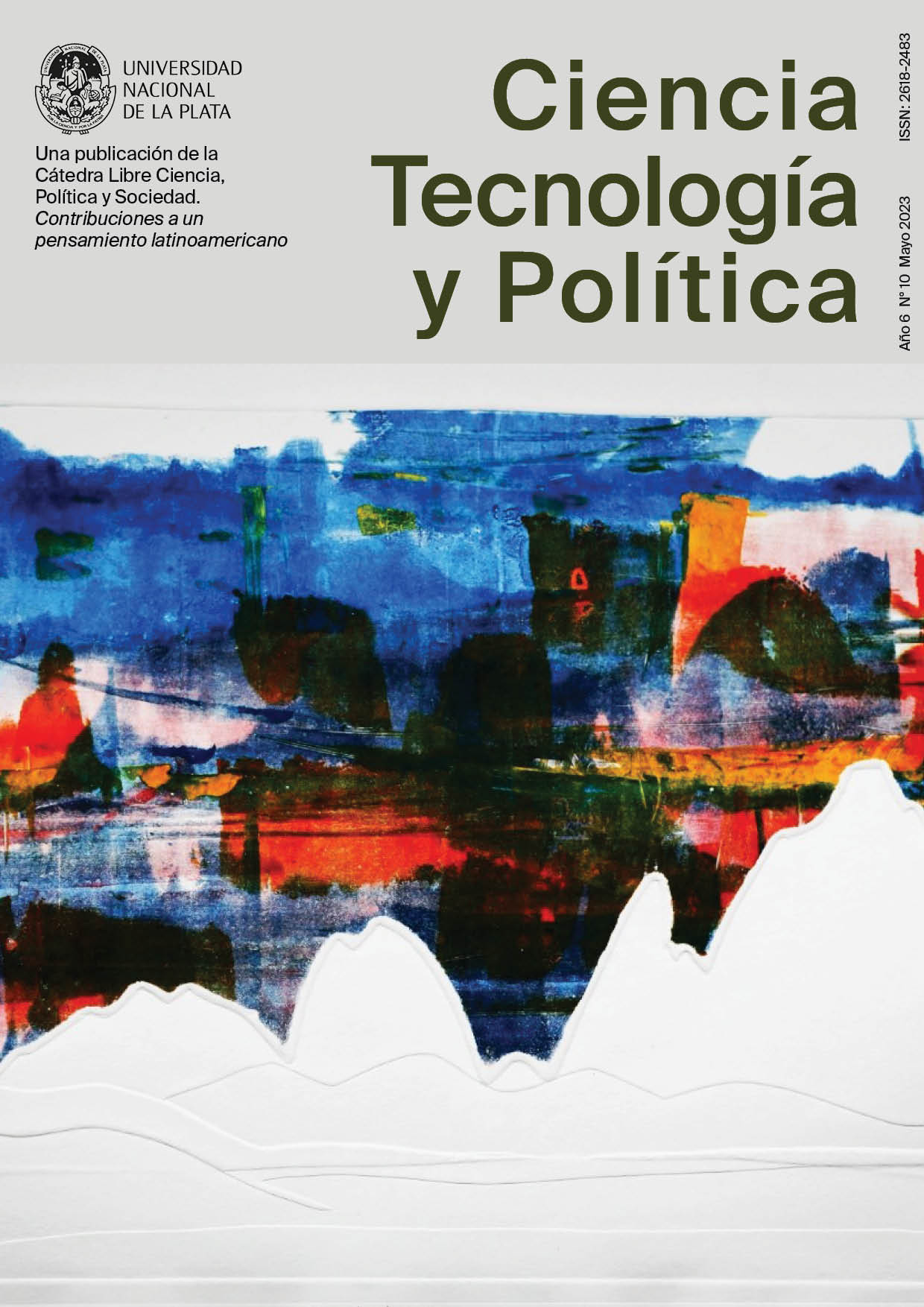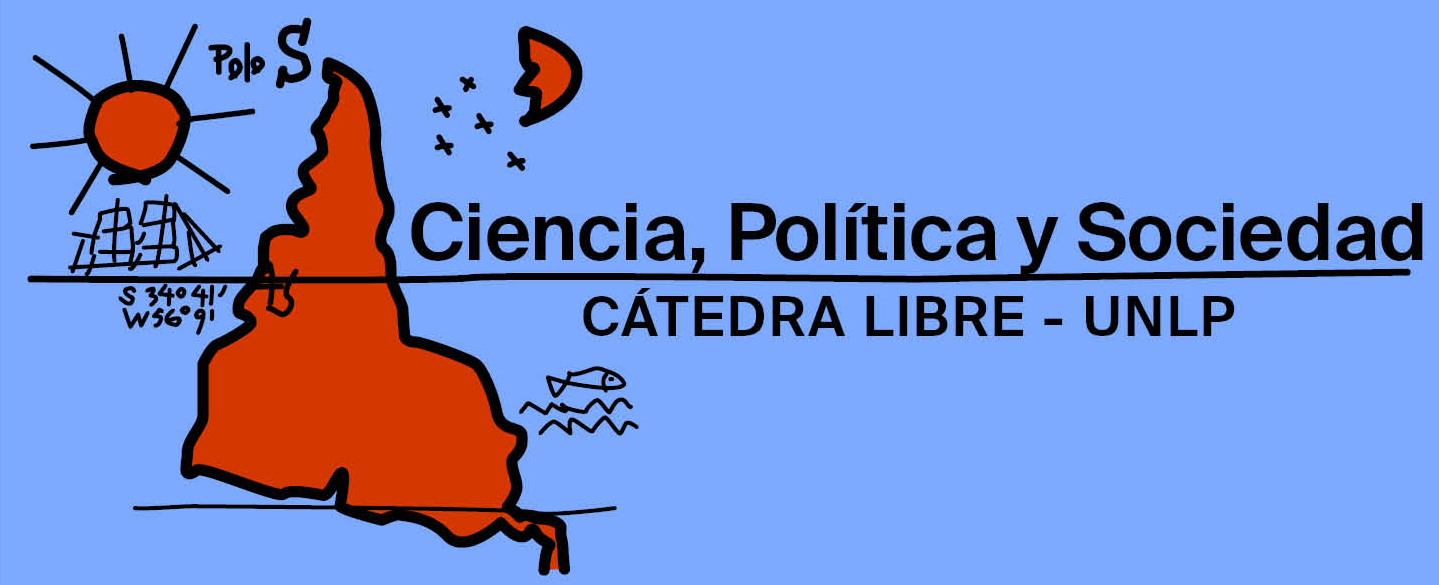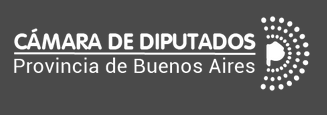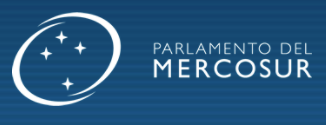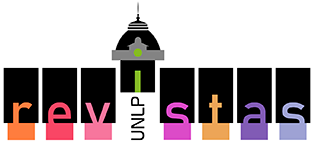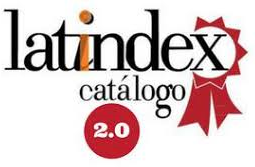CONICET grants for Strategic Topics: Balance and challenges
DOI:
https://doi.org/10.24215/26183188e091Keywords:
qualified human resources, mission-oriented policy, science fundingAbstract
The allocation of funding according to certain topics, priorities, problems, or missions defined a priori by actors exceeding the scientific community is a key trait of a new generation of science, technology, and innovation policies. This article describes and analyzes the policy on doctoral a and postdoctoral grants of Argentina’s CONICET on Strategic Topics, created in 2012. First, the relevance of these policies in the context of the organism implementing them is presented. Second, the circumstances of their creation, goals, evolution, and main transformations in time are described. Third, their weight compared to other grant modalities is discussed, a series of future challenges is identified, and possible alternatives to face them are outlined.
Downloads
Metrics
References
Bilmes, J., Carbel, A. y Liaudat, S. (2022). Resurgimiento de la planificación del desarrollo en Argentina: logros, limitaciones y aprendizajes de la experiencia kirchnerista (2003-2015). En M. Patrouilleau y J. Albarracín Deker (Coords.), Prospectiva y estudios del futuro: Epistemologías y experiencias en América Latina (pp. 255-279), CIDES-UMSA.
Braun, D. (2003). Lasting tensions in research policy-making: A delegation problem. Science and Public Policy, 30(5), 309-321. https://doi.org/10.3152/147154303781780353
Emiliozzi, S. (2011). Políticas en ciencia y tecnología, definición de áreas prioritarias y universidad en Argentina. Revista Sociedad, 29(30), 149-167.
Fischer, M., Goldberg, M. y Jeppesen, C. (2023). Trayectorias en investigación orientada a la resolución de problemas. El caso de los temas estratégicos del CONICET, Argentina. Revista Iberoamericana de Ciencia, Tecnología y Sociedad.
Gargiulo, G. y Melul, S. (1992). Análisis de los Programas Nacionales de Investigación de la Secretaría de Ciencia y Técnica. En E. Oteiza (Dir.), La política de investigación científica y tecnológica argentina: historia y perspectivas (pp.317-338), Centro Editor de América Latina.
Jeppesen, C. V., Bentura, M., Goldberg, M. y Fernández Lopes, P. (5-7 de diciembre de 2018). La formación de doctorado y el programa de becas de Temas Estratégicos en CONICET: Descripción y aportes para una evaluación programática. X Jornadas de Sociología de la Universidad Nacional de La Plata, Ensenada, Argentina.
Langfeldt, L., Nedeva, M., Sorlin, S. y Thomas, D. A. (2020). Co-Existing Notions of Research Quality: A Framework to Study Context-Specific Understandings of Good Research. Minerva, 58, 115–37. https://doi.org/10.1007/s11024-019-09385-2
Laudel, G. (2006). The art of getting funded: how scientists adapt to their funding conditions. Science and Public Policy, 33(7), 489–504. https://doi.org/10.3152/147154306781778777
Laudel, G., Bielick, J. y Gläser, J. (2019). Ultimately the question always is: “What do I have to do to do it right?”. Scripts as explanatory factors of career decisions. Human Relations, 72(5), 932-961. https://doi.org/10.1177/00187267187865
Ministerio de Ciencia, Tecnología e Innovación Productiva de Argentina (2013). Plan Argentina Innovadora 2020.
Naidorf, J. y Perrotta, D. (2015). La ciencia social politizada y móvil de una nueva agenda latinoamericana orientada a prioridades. Revista de la Educación Superior, 44(174), 19-46. https://doi.org/10.1016/j.resu.2015.05.001
Nápoli, M. y Naidorf, J. (2021). Sobre la propuesta preliminar del Plan Nacional de CTI 2030 de Argentina. Ciencia, Tecnología y Política, 4(7), 066. https://doi.org/10.24215/26183188e066
Niembro, A. (2020). ¿Qué significa la federalización de la ciencia y la tecnología en Argentina? Ciencia, Tecnología y Política, 3(4), 036. https://doi.org/10.24215/26183188e036
Rodríguez, M. I. (2018). Apuntes para reflexionar sobre política científica: el caso de un programa de becas de “vacancia geográfica”. Question/Cuestión, 1(59), e066. https://doi.org/10.24215/16696581e066
Rovelli, L. I. (2017). Expansión reciente de la política de priorización en la investigación científica de las universidades públicas de Argentina. Revista Iberoamericana de Educación Superior, 8(22), 103-121. https://doi.org/10.22201/iisue.20072872e.2017.22.231
Sarthou, N. (2019). Tendencias en la evaluación de la ciencia en Argentina: género, federalización y temas estratégicos. Ciencia, Docencia y Tecnología, 30(59), 37-73. https://doi.org/10.33255/3059/695
Sarthou, N. (2021). Identificando prioridades en política científica y tecnológica en Argentina: el método de Unesco. Revista de Ciencias Sociales, (171), 119-136. https://doi.org/10.15517/rcs.v0i171.49242
Sarthou, N. y Loray R. (2021). Estratégico, prioritario u orientado a misiones: qué aporta la literatura a la orientación de las políticas en ciencia, tecnología e innovación en Argentina. En C. Sandra (Comp.), Desarrollo y Políticas de Ciencia, Tecnología e Innovación en un mundo en transformación (pp. 74-106). UNCPBA.
Sarthou, N., López, M. P., Bidone, E. L., Guglielminotti, C. y Piñero, F. (2022). Políticas para orientar la investigación en la universidad: interdisciplina y vinculación con el entorno. Ciencia, Docencia y Tecnología, 33(66). https://doi.org/10.33255/3365/1316
Unzué, M. y Rovelli, L. I. (2017). Cambios, tendencias y desafíos de las políticas científicas recientes en las universidades nacionales de Argentina. Tla-melaua, 11(42), 242-261. http://dx.doi.org/10.32399/rtla.11.42.289.
Villegas, M. (2020). Procesos de planificación en CTI. El Plan Argentina Innovadora 2020 y sus principales instrumentos: FONARSEC y Becas para Temas Estratégicos [Tesis de Maestría]. Facultad Latinoamericana de Ciencias Sociales.
Published
How to Cite
Issue
Section
License
Copyright (c) 2023 Nerina Sarthou

This work is licensed under a Creative Commons Attribution-NonCommercial-ShareAlike 4.0 International License.
The authors whose texts are published in this Journal surrender their ownership rights in favour of the editor in a non exclusive manner, i.e. the authors can enter into other independent and additional contracts to publish their text, e.g. including it in an institutional repository, thematic or otherwise, publish it in a book, or others, as long as it is overtly stated that the work was first published in this Journal.
The responsibility for each published paper as regards its content relies exclusively on its authors, holding the editors harmless for any legal liabilities.
The texts of the Journal shall be published under the Creative Commons 4.0 BY-NC-SA license. Therefore, the editors are free to:
1) Share, copy and redistribute the material using any means or format.
2) Adapt, remix, transform and create from the material, under the following conditions:
a) Attribution — credit to this work must be given in an appropriate manner, providing a link to the license and indicating if changes have been made.
b) Non-Commercial Use — no use may be made of the published material for commercial purposes.
c) Share Equal — Authors remixing, transforming or creating from the material must distribute their contribution under the same license as the original.

